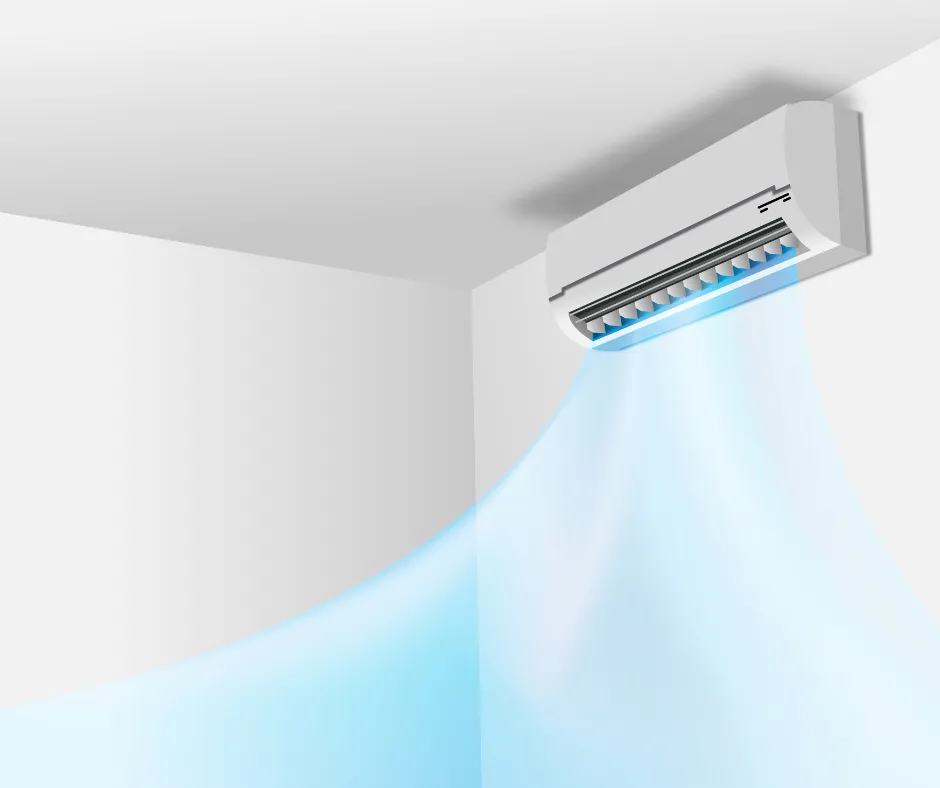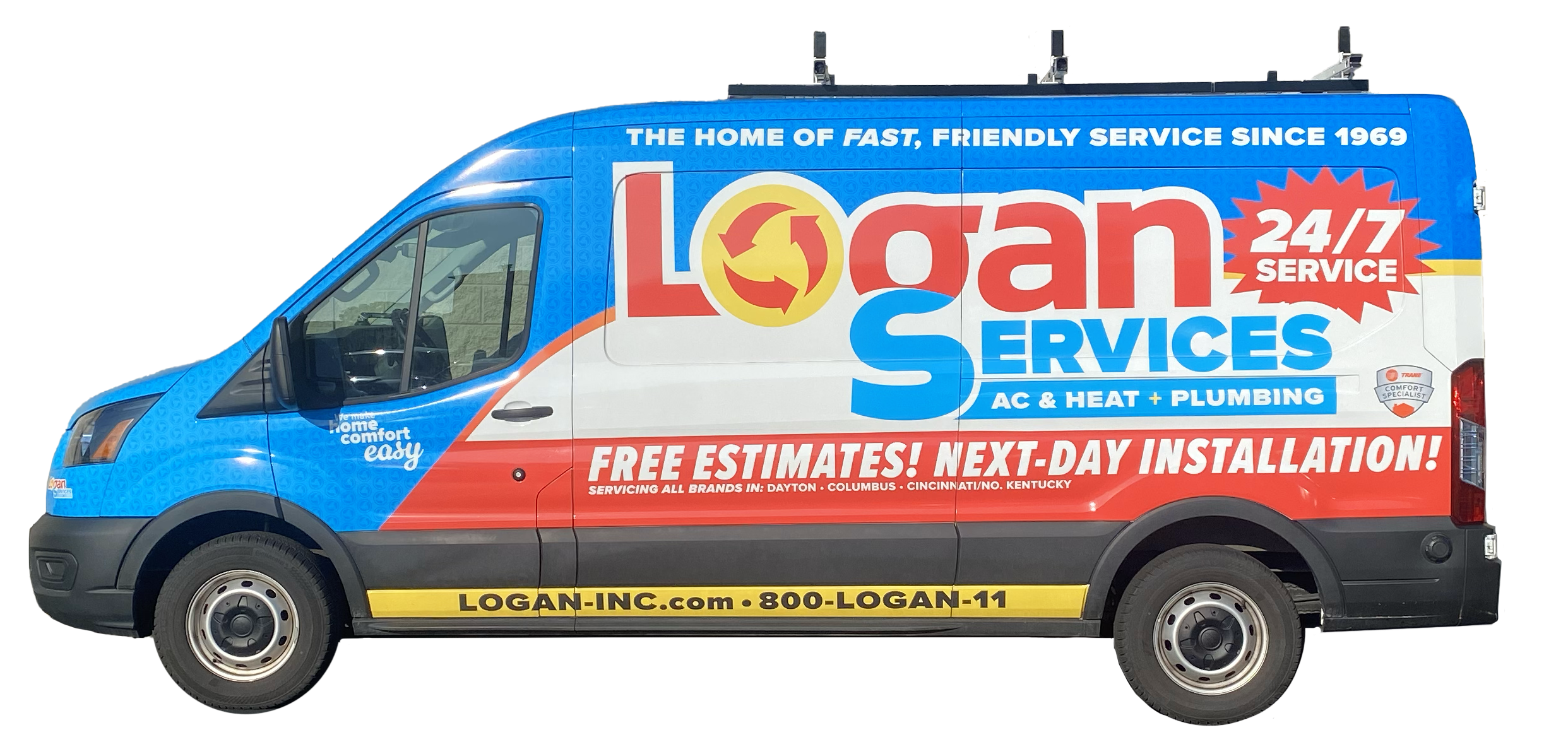Curious about whether indoor AC units are effective in cooling a space? In this article, we explore the functionality and benefits of an indoor AC unit. We also discuss important factors to consider before purchasing one. From understanding the different types of indoor units to weighing the cost and maintenance requirements, we’ll help you make the right decision.
What is an Indoor AC Unit?
An Indoor AC unit, often known as a room air conditioner, is a device designed to cool a single area or room in a house. Unlike central air conditioners, which cool the entire house, an indoor AC unit provides spot cooling for specific areas. These units are popular in small businesses and residential settings, where cooling only a specific area can result in substantial energy savings.
Definition of an Indoor AC Unit
Technically, an indoor AC Unit, or portable air conditioner, is a self-contained appliance that pulls in warm air, cools it, and then expels the cooled air back into the room. A type of indoor ac unit is the portable ac unit, which can be quickly moved from room to room, providing targeted, efficient cooling wherever needed.
Types of Indoor AC Units
Several indoor units are available today, each designed with a particular use case. These include window units, wall-mounted units, and portable air conditioners.
Window Units
Window units are the most traditional type of room air conditioner. These are installed in a window, utilizing a window kit provided by the manufacturer.
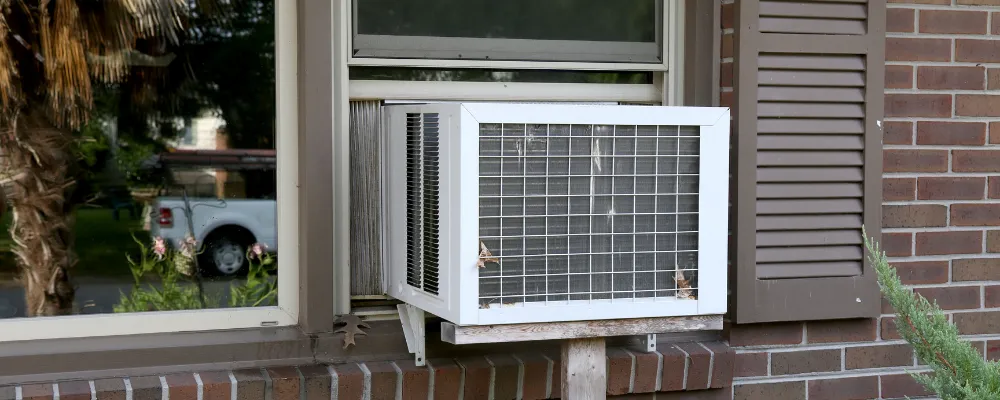
Wall Mounted Units
On the other hand, wall-mounted units are attached to the wall and can operate more efficiently than window units since they create a tighter seal. The main advantage of wall-mounted units is that they free up window space, giving you more natural light and a better view.
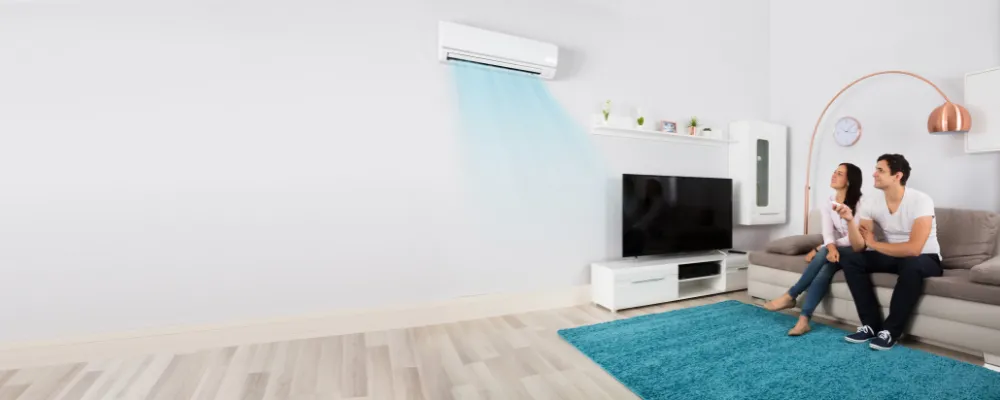
Benefits of Indoor AC Units
Indoor units offer a range of benefits to homeowners and small business owners. These include improved indoor air quality, energy efficiency, and convenient installation.
Improved Indoor Air Quality
One of the greatest benefits of an indoor AC unit is enhancing indoor air quality. Most modern room air conditioners have filters that traps dust, pollen, and other airborne particles, improving the air quality in the room.
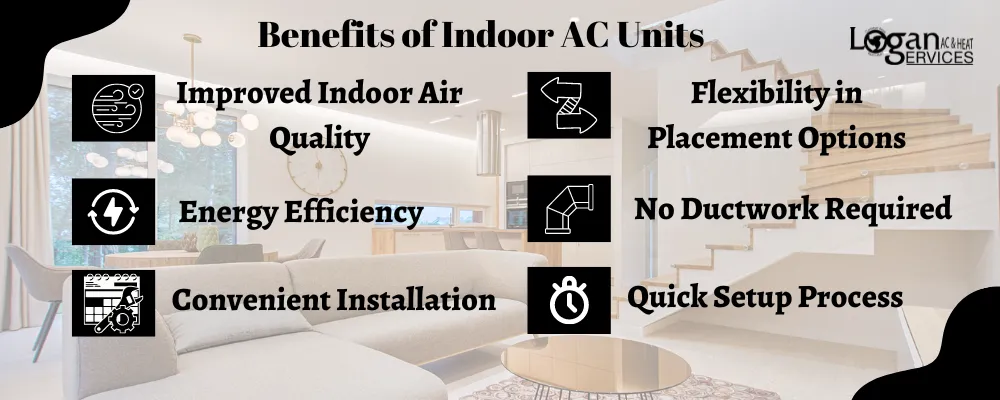
Energy Efficiency
An Indoor AC unit is also more energy-efficient than central systems, especially when cooling a small area. This efficiency stems from the ability to cool specific areas rather than the entire building. As such, less energy is wasted, leading to lower utility bills.
Convenient Installation
Indoor units require no complicated installation process, and most models come with an installation kit. Some units, known as portable air conditioners, even come on wheels, allowing for easy repositioning as your cooling needs change.
No Ductwork Required
An indoor AC unit’s particular advantage is that it doesn’t require ductwork. This feature makes them ideal for buildings or rooms where installing ductwork is not feasible or cost-effective.

Quick Setup Process
In addition to being easy to install, indoor AC units also often feature a quick setup process. Most units come with manuals and installation guides for DIY enthusiasts, meaning you can usually get your unit up and running quickly.
Flexibility in Placement Options
Another benefit of indoor units is their flexibility in placement options. Depending on the unit type, you can locate it wherever it suits you in the room. For instance, portable air conditioners can usually go anywhere on the floor, provided an electrical outlet is nearby.
Factors to Consider Before Purchasing an Indoor AC Unit
The decision to invest in an indoor AC unit can be a significant one for any homeowner or small business owner. It’s essential to make an informed choice considering various factors, such as size and cooling capacity, noise level, energy efficiency ratio (EER), maintenance requirements, and cost and budget considerations. Below, we delve into these areas to explore what you should pay attention to in your selection of the best portable air conditioner for your needs.

Size and Cooling Capacity
The size and cooling capacity of portable air conditioners are important, as they can influence your comfort and energy efficiency. In general, the cooling capacity of room air conditioners is measured in British Thermal Units (BTUs). The floor area of your room should guide the BTU capacity you choose.
For instance, a 200-square-foot room will typically require an indoor AC unit with a capacity of 5,000 BTUs.

Remember, a portable AC unit that’s too small will struggle to cool your space, whereas one that’s too large will cool too quickly, leading to inefficient energy use and even issues with too much humidity.
Noise Level
The noise level can add or detract from portable air conditioners’ usefulness. A loud unit may be bearable in commercial areas but can become a nuisance in a quiet home environment. When considering noise level, it is advisable to consider the operational noise data provided by the manufacturers. Consider a personal air cooler with noise-reduction technology for situations where silence is paramount.
Energy Efficiency Ratio (EER)
The Energy Efficiency Ratio is a critical factor to consider. It measures the cooling capacity of a room air conditioner relative to its energy consumption. A higher EER means better energy efficiency, which translates to savings on energy bills over time. Look for indoor units that have an EER of at least 10, as this is generally considered efficient.
Maintenance Requirements
In terms of maintenance, some indoor units require more regular attention than others. Regular filter changes are essential for maintaining air quality. Many of today’s portable air conditioners come with reusable filters that you can easily clean yourself. Other maintenance tasks may include emptying a water reservoir or paying for professional servicing. Make sure you’re comfortable with the level of upkeep required before making your purchase.

Cost and Budget Considerations
Finally, consider the price of the indoor AC unit and your budget. Consider accessories like an installation kit, which some models include for free. Also, factor in the long-term expenses such as maintenance costs and energy bills.
FAQs
What is the indoor AC unit called?
The indoor AC unit is commonly referred to as an air handler. It is responsible for circulating cool air throughout the indoor space by pulling the warm air from the room, passing it over the evaporator coil to cool and dehumidify it, and then releasing the cool air back into the room through the vents. The air handler also contains a blower fan that helps in the circulation process.
Can you use an indoor AC unit without a window?
No, an indoor AC unit requires proper ventilation, and therefore it cannot be used without a window or some form of outlet for the hot air to be expelled. These units work by cooling the air and removing heat from the room, which is then transferred outside through the exhaust hose. Without a window or a designated venting system, the hot air will not be able to escape, and the AC unit will not adequately cool the space.
Do they make indoor air conditioners?
Yes, indoor air conditioners are available in the market. These portable air conditioners are designed to be used indoors and provide cooling specifically for individual rooms or small spaces, such as apartments, bedrooms, or offices. They typically have wheels for easy mobility and can be easily installed by venting the hot air out through a window or a hose. Indoor air conditioners are a convenient cooling solution for those who do not have central air conditioning or for those who want to cool specific areas within their homes.

